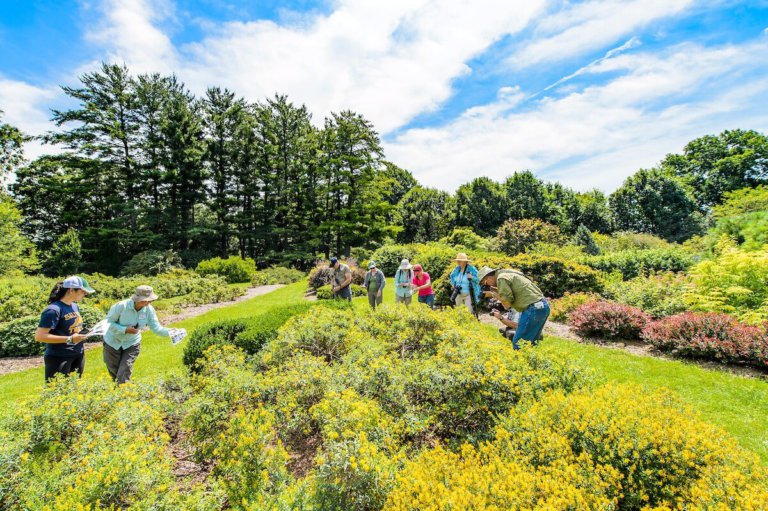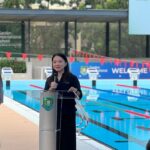
Sakyiwa comes from a family of nature lovers. Her father is an agriculturist who has taken her on many memorable road trips. His father, Sakyiwa’s grandfather, has a house known as “Noah’s Ark” among close family and friends, deemed a real safe haven for all flora and fauna.
In Ghana, where Sakyiwa is from, it’s unusual to pursue a degree in conservation; more so if you’re female. But for Sakyiwa, it was a no-brainer.
At college, she read Animal Biology and Conservation for her undergraduate degree. It was a time peppered with voluntary stints at institutions with environmental outreach programmes, as well as rapid assessment or field data collection as a field co-ordinator. After graduating, she worked as a full-time research and teaching assistant in the ecology and conservation field.
As illustrious and rewarding as this was, Sakyiwa felt she still wanted and needed more.
“My undergraduate experience and social interactions prompted me to pursue higher education in a field that will allow the build up of interdisciplinary skills to enable me to become more successful at resolving environmental challenges even at the local level,” she said.

University of Wisconsin-Madison
This search led her to the University of Wisconsin-Madison’s Nelson Institute for Environmental Studies. With interdisciplinary scholarship standing as one of its most well-known successes, along with its reputable list of community-based approaches, the Institute fulfilled Sakyiwa’s two main criteria for a Master’s programme. Her goal is to seek “community-based approaches to solving some of the biggest environmental challenges of our time”, and she found no better place to do this than at the Institute.
“The Environmental Conservation programme promised to provide me with the necessary tools that would enable me to develop or sharpen interdisciplinary skills through diverse course work and a practical placement,” she explained.
The professional Master’s in Environmental Conservation spans just 15 months. But what it lacks in duration is made up by a 32-credit course innovatively weaved between campus learning and remote experiences, ensuring students receive all requisite knowledge and skills on conservation planning, land use policy and professional skills development. One of the highlights of Sakyiwa’s course even included a simulated activity that saw students strive to survive a plane crash in the Nevada desert.
The degree culminates with an 8-12 week applied conservation project with an NGO, government agency, educational institute or private sector partner.
For 31-year-old Deepika Guruprasad, this project took her on a journey more than 8000 miles away from Wisconsin to India.
Pursuing a Master’s in Environmental Observation and Informatics (EOI), her course is a 15-month programme that combines hands-on, in-person training with distance learning. It’s an option under the Master’s in Environment Conservation programme which integrates cross-cutting Earth observation, technologies and big data analytics.
Earlier in the course, Deepika, who was previously a software developer, got to sharpen and specialise her tech skills in this field. This included specialist knowledge in digital image analysis and interpretation, geospatial data science, programming (R, Python, ENVI, Javascript) and the policy and ethics of using observational data for environmental problem solving.
Like the MS in Environment Conservation, the EOI programme also culminates with an 8-12 week applied conservation project. This saw Deepika fly to Karnataka, India, to work with NGO Wildlife First to map land use in the Nethravathi watershed and quantify forest loss and habitat fragmentation due to infrastructure developments like roads, railway lines, powerlines and so forth.
She visited the area to understand the growing cycles and visual cues of various plantation crops, obtained GPS locations of various land uses, acquired GIS and satellite imagery datasets, conducting analyses using data collected and producing maps and reports to communicate results. It was a solo effort mostly, though her advisors were always ready to lend guidance and support.
“The applied project helped me gain first-hand experience of designing an applied research project focused on geospatial analyses. I also got the opportunity to conduct field work and meet people, which was invaluable to the project,” Deepika explained.
“This experience has enriched me personally and the skills I have learnt during the course of project development implementation will benefit me in applying these skills in my professional career.”
The Institute maintains close links with alumni and industry figures in a variety of conservation organisations. This allows them to identify leadership opportunities and match the specific interests and skill sets of their students to organisational and agency needs at local, regional and global scales, setting students on the path to professional success.
So far, Nelson Institute students have completed their MS project with partner organisations such as Conservation International, the Amazon Conservation Association, International Crane Foundation, Wildlife Conservation Society, Smithsonian Institution Gabon, US Fish and Wildlife Service Pathways Program, US National Park Service Pathways Program and more.
Another Institute feature that gives students access to accomplished professionals is the Summer Conservation Institute. In this nine-credit curriculum, leading practitioners are invited to the UW-Madison campus to participate in leadership seminars and advanced-level courses in conservation planning and land use policy.
A sample of past Summer Conservation Institute guests include Dr Lilian Pintea (Vice President of Conservation Science, the Jane Goodall Institute), Dr Michael Dombeck (former Chief, US Forest Service), D Rebecca Smith, (Director, Upper Mississippi River Program, The Nature Conservancy) and Dr Anne Savage (Conservation Director, Animals, Science, Environment, Walt Disney’s Parks and Resorts).
Had Deepika and Sakyiwa decided to pursue their graduate studies elsewhere, they would have missed out on these unique opportunities. In any event, Deepika could not find any Indian university offering a Master’s like Nelson Institute’s, and it’s usually in developed countries where organisations that fund conservation projects are based. Sakyiwa would not have learnt about the intricacies of what informs donors in international programmes had she not pursued a Master’s here.
Both students agree that the multicultural faculty and student body is another invaluable advantage of studying at the Nelson Institute. The “opportunity to interact with faculty and students from different backgrounds and home countries is unique in the US,” Deepika explains.
Sakyiwa adds: “With the diverse multicultural background and career experiences of my cohort, I found our classroom discourse and activities engaging and enlightening. This encouraged me to be more open-minded, progressive and forward – thinking in my daily interaction…The racial diversity and cultural difference alone were very beneficial to my overall studies especially in my chosen field and career.”
No matter where your passion for the environment lies, the Nelson Institute offers the perfect graduate school programme for anyone seeking an interdisciplinary, world-class education with a multicultural campus.
Follow the Nelson Institute on Facebook and Twitter
Liked this? Then you’ll love…
Degrees Explained: Environmental Science
4 environmental schools that give us a fighting chance of solving the biodiversity crisis







